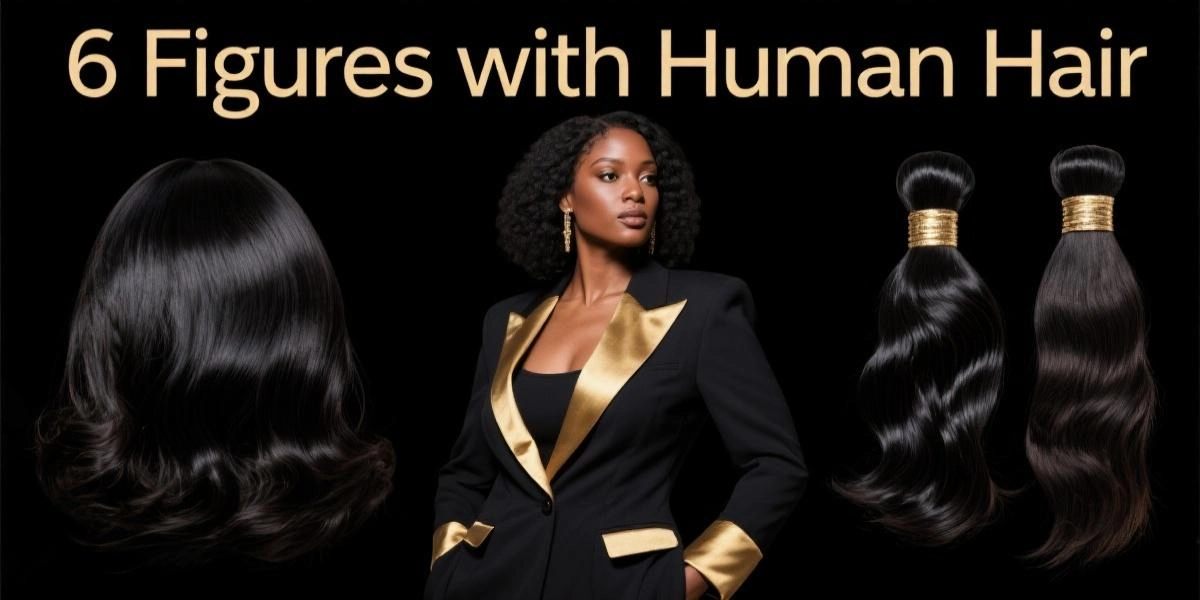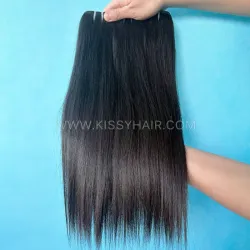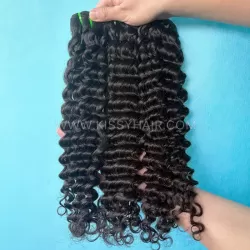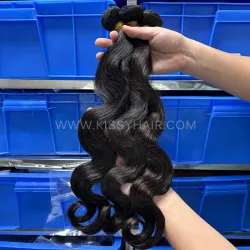If you are struggling with inconsistent supply chains and low margins when sourcing human hair, this post is for you.
Problem: Unreliable Quality and Supply of Human Hair
Black hair wholesalers often ask: “Why do my human hair orders arrive with varying textures and lengths?” Inconsistent quality, unpredictable delivery times, and fluctuating costs plague many B2B buyers. Without a dependable source, you risk angry clients, high return rates, and wasted marketing spend.
Why It Matters
- Brand Reputation: Your B2B buyers rely on you to deliver premium weaves and extensions every time. One bad batch can tarnish your reputation and drive clients to competitors.
- Cash Flow Stability: Uncertain supply and variable costs make forecasting difficult. When your cost of goods sold spikes unexpectedly, your profit margins evaporate.
- Customer Retention: Wholesale buyers demand consistency. If you can’t guarantee the grade and length of your human hair, they’ll jump ship—and fast.
Solution: Build a Bulletproof Sourcing and Sales Strategy
Let’s break it down into actionable steps.
1. Vet and Diversify Suppliers
Here’s what you can do:
- On-site Factory Audits: Don’t rely solely on photos or sample bundles. Schedule virtual or in-person visits to verify hair procurement practices and quality control.
- Multiple Approved Vendors: Avoid single-point failures. Establish relationships with 2–3 certified human hair suppliers in different regions (India, Malaysia, Brazil) to cushion against regional disruptions.
- Quality Benchmarks: Define clear metrics (e.g., cuticle alignment, tensile strength, true-to-length grading). Require each vendor to submit a third-party lab report on fiber integrity.
2. Negotiate Volume-Based Contracts
Black hair wholesalers often ask how to secure better pricing.
Here’s what you can do:
- Tiered Pricing Agreements: Lock in cost-per-kilo discounts at milestones—e.g., 500 kg, 1,000 kg orders—so your purchasing cost decreases as you scale.
- Flexible MOQ Clauses: Negotiate minimum order quantities that adjust based on quarterly sales forecasts. This prevents overstock and tied-up capital.
- Long-Term Commitments: Suppliers favor predictable buyers. Offer 12–18 month contracts in exchange for price stability and priority production slots.
3. Implement Rigorous Quality Control
Here’s what you can do:
- Incoming Inspection Protocols: Randomly sample every incoming shipment for breakage rates, true length, and color consistency.
- Standard Operating Procedures (SOPs): Train your warehouse team to follow SOPs for handling, storing, and repackaging hair to prevent tangling and moisture damage.
- Customer Feedback Loops: Encourage wholesale clients to report any discrepancies within 3 days. Use their feedback to adjust supplier scorecards and address issues before they escalate.
4. Enhance Your Sales and Marketing Funnel
Here’s what you can do:
- SEO-Optimized Content: Publish B2B-focused guides—such as this one—targeting “Human Hair” and long-tail terms like “bulk human hair extensions supplier.” This drives qualified leads organically.
- Case Studies & Testimonials: Showcase success stories: “How XYZ Salon increased profits by 35% using our virgin human hair…” Build trust with data-backed narratives.
- Trade Shows and Virtual Showrooms: Invest in booth space at major beauty expos and maintain an interactive online catalog with high-resolution product images and detailed spec sheets.
Results: Predictable Growth and Profitability
- 30–50% Fewer Quality Complaints: A standardized QC process reduces return rates, protecting your margins.
- 20–40% Improved Gross Margins: Volume-based contracts and diversified sourcing lock in lower costs.
- Double-Digit Revenue Growth: Enhanced SEO and targeted outreach attract high-value B2B clients, driving you toward that coveted six-figure revenue threshold.






Leave a Comment